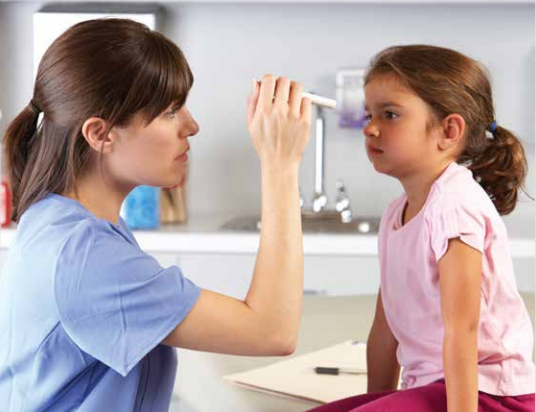


As parents, we know that children must be healthy and feel well to concentrate on learning. When we send our children off to school for the day, it is important that their health needs are met. School nurses address the physical, mental, emotional and social health of our children. Their ultimate goal is support of student success in the learning process. School nurses have specialized training. Each is a registered nurse with a minimum of a bachelor’s degree and a postbachelor’s state certification in school nursing.
What does a school nurse do? Generally school nurses measure height, weight, blood pressure, vision and hearing, and notify parents and guardians of any abnormalities found. Additionally, school nurses promote and maintain optimal student health by:
•Providing first aid and arranging for assessment and assistance to a child who becomes ill or injured at school or who demonstrates a significant change in behavior, whether due to a physical or social/emotional cause.
•Communicating with parents or guardians when further medical care or attention may be needed, and making referrals as appropriate.
•Supporting the health curriculum by teaching health lessons to students and/or serving as a resource to classroom teachers.
•Educating the school staff about health matters that affect students and/or staff.
•Collaborating with other school professionals, parents/guardians and the student’s healthcare team, as needed, to foster maximum student success.
•Providing health counseling to students as needed on an ongoing basis.
From the students’ point of view, the school nurse is a caring adult to whom they can go for reassurance when feeling ill or just overwhelmed at school. From the parents’ point of view, the school nurse has the important role of maintaining the safety of our children. Because of the uniqueness of a school nurse’s professional training, he or she is able to assess a child from an experienced medical “lens” and intervene appropriately, whether that be through referrals, urgent medical care or simply discussing the matter with parents, suggesting when action is needed and when it is not.
Source: California School Nurses Association
Good Neighbor Pharmacy Health Connection, August 2017